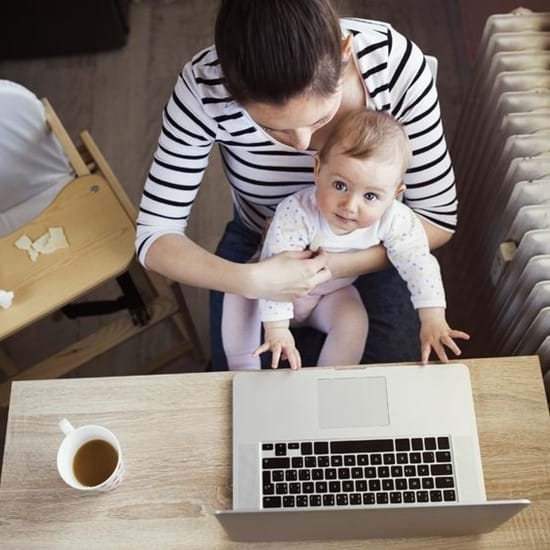
Using COVID-19 as Learning Material

Written by: Éducaide
School is officially on pause. The mandatory lockdown caused by this health crisis has completely changed our daily routines, including that of our children.
As parents, you may be wondering how you can help your children stay on track in their schooling without becoming full-time teachers.
A number of resources have already been announced: Open School, Télé-Québec en classe, etc. But why not use COVID-19 itself as learning material?
Younger children
Creativity and imagination: Take out some coloured pencils and ask your little ones to draw their version of the “bad COVID virus.” You’ll be surprised to discover an unsuspected imaginary world! For school-age children, you can raise the bar by proposing they write a story on the subject. This is great for their writing skills as it provides an opportunity to practise their English grammar without even realizing it.
“Old-fashioned” communications: Suppers via FaceTime with grandparents are great! But why not talk about traditional methods of communication with your children and take them back to another era? Have fun seeing their incredulous look when you share stories of the good old days when your phone had a cord that kept you on a leash during your conversations with friends! Explain how pagers, fax machines, and even answering machines worked; these devices will seem so alien to them. Learning about how it was “back in the day” is still learning!
Comfort from letter-writing: Rediscover the enjoyment of postal services. Introduce your children to the experience of writing a letter or drawing a picture they can mail to a friend, caregiver, teacher, godfather or a favourite aunt. They will enjoy this activity once considered so common. In addition, the person who receives the letter will certainly be touched.
Older Kids
Oral presentations: Have your kids listen to the Prime Minister’s daily media briefing. Then ask them for a verbal summary of the most important points. In addition to developing oral communication, they will exercise their listening and summarizing skills while keeping up with the news.
Debate: Choose a topic related to the crisis or the lockdown on which there is no consensus and discuss it together. This simple, yet effective strategy helps them develop their own thinking and line of reasoning. You will also learn about their views on the situation.
Written communication: Ask your teens to write an essay about their fears related to the pandemic. You will encourage them to share their emotions while honing their writing skills. Again, this approach offers an alternate method of learning while helping you get to know your child better.
You can also encourage your children to do some of these exercises online with friends. It’s normal for both young children and teens to miss their circle of friends, so it’s essential they can keep in touch, which will also contribute to a positive return to school life.
Finally, a can-do attitude towards school work is often a question of self-esteem and positive self-projection. And although kids work on building these skills at school, it essentially comes down to family upbringing. Why not take advantage of the lockdown to reconnect with your children? Learn more about what they like (or don’t like), about their dreams, what activities they want to do once the crisis ends, and so forth. This period offers an opportunity to strengthen your bond with your children.
Stay strong, it will be ok!


